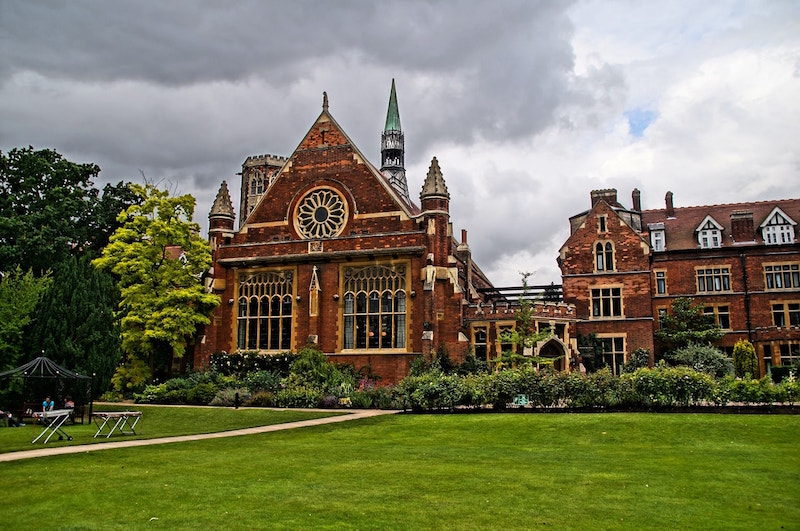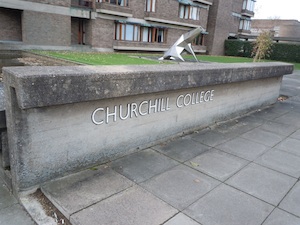
Claudiaexpat shares her experience helping her son applying to UK universities.
To all you mothers out there, this article is for you! I myself am a very lucky mother because my first son chose to go to university in France, whereas my second son will get his baccalaureate in June and wants to continue his studies in England. However, in order to secure a place in the UK universities everyone must send their applications well in advance and, therefore, at this time of the year I already know quite a lot about applying and I’m happy to share my experience with you.
The starting point
There is a clear starting point when applying to UK Universities. It is a website called UCAS (Universities and Colleges Admissions Service) and it is an extremely well thought out and extensive website. For instance, here it is clearly explained what the deadlines are, which you must respect. For applications the dates are: 15th October for Cambridge and Oxford Universities, and for Medicine; 15th January for the majority of universities; and 24th March for some art and design courses. First of all, each student will have to look for the course, faculty, specialization and the college or university he or she would like to attend. You can visit university websites at Wikipedia page, which is a comprehensive list, or search the net with keywords about the topics they would like to study.
How many applications
It is important to know that they cannot apply to more than five universities, and that they cannot apply both to Cambridge AND Oxford. They should choose one of the two, and then their application might be transferred from one to the other in case the university they applied to is not interested. Always be aware of the deadlines! If they want to apply to Cambridge or Oxford, before 15th October, they can also apply at the same time to other universities, if they have already decided what they want. They will have until 15th January to complete the applications. For instance, my son has applied to Cambridge University, and since he had already found two more courses he is very interested in, one in London and one in Durham, he also applied for those. Now he is more quietly searching for two more universities in order to reach the maximum allowed which is five.
The procedure
The procedure for applying is explained thoroughly here where they must create a username and a password. After this, they will receive an ID that they’ll use to enter the website and monitor the state of their applications and for use in all their communications with the universities. They can fill in the applications little by little and I suggest they start by compiling the section concerning their address, contacts, etc. and end with a personal statement.
However, before applying, I suggest you and your children have a careful look at the website of your selected university. To give you an idea of what you will find here is the page where the University of Cambridge explains how to apply . If you apply outside of Europe, besides the normal procedure via the UCAS website, they will also have to fill out a questionnaire called COPA (Cambridge Online Preliminary Application), which has to be sent by 15th October.
Cambridge
I continue with the Cambridge example because that’s where my son has applied and I can therefore tell you with certainty what will happen. Once you send your application by 15th October, together with the COPA questionnaire, if you apply from outside the European Union, you will receive an e-mail that confirms receipt and they will have until 22nd October to complete the SAQ (Supplementary Application Questionnaire). If they have filled out the COPA, they won’t need to complete the SAQ, just check the box where they’re asked if they have sent in the COPA. If, on the other hand, they have not filled out the COPA, they will have to complete the SAQ, and again the procedure is explained in detail with a series of clear videos.
Both COPA and SAQ require that they send proof of the marks that they received during the last two years in the school they were attending. If they are studying in a language other than English, they will have to translate them and have them stamped by the school. They will also need a digital photo. Start early!!! It is very risky to prepare all the documents at the last moment as there is much to do.
 The personal statement
The personal statement
This is a very important element of the application and requires a lot of concentration. It is the tool through which they can draw attention to their profile. They will find plenty of examples and tips online to prepare for their personal statement. My suggestion is, if possible, ask a friend who is studying in England to read the statement.
It took us almost one month to complete ours, and we changed it several times. The personal statement shapes slowly with everybody’s suggestions including teachers, friends in the academic world, and students at British universities. The statement must aim at showing the university that they are the ideal candidate for that course. Hence, it must stress their strengths in the subject of the course. Why do they want to study law, psychology, medicine or literature? What is special about them that can convince the school it will be an advantage to have them as a student?
Bear in mind that marks today are no longer the only important factor – what makes the difference is a creative profile, a successful personality, and elements that promise they will participate in the course in a constructive way. Be honest as it is useless to fill out statements with things they won’t be able to substantiate in case they are called for an interview. They should always try to answer these questions:
*How can I contribute to the course?
*Why should they choose me?
They should put their life experiences in relation to the subject they want to study, show what makes them a good student and why they are so highly motivated. Their statement should contain a good balance of personal elements (skills, talents, and formative life moments) and practical experience that can count for the subject they intend to study such as readings, courses, extra school activities, volunteering, and personal interests. They should try to communicate passionately and honestly. If they are not Anglophone, their English must not necessarily be impeccable but, they should ask a mother-tongue speaker to read their statement to make sure the concepts are clearly explained.
Their personal statement must be added to their online application on the UCAS website, and it’s easy with a classic copy and paste, and will be valid for ALL universities they apply to.
The reference letter
They should choose a person who will be their referrer – in our case it was Mattia’s English teacher, but it could be any other teacher or someone who knows the student well. Maybe someone he or she worked with or volunteered with. I suggest they choose a teacher because the university can decide to get in contact with the referrer and ask about things linked to the school life of the student. The reference letter is the last step of the application. They must first complete all the previous parts, and validate, including the e-mail address of the referrer. Once the application has been sent, the university sends a message to the referrer and invites him or her to send the reference letter. It is therefore important that the referrer is someone you trust and with whom you can get in touch with quickly in case you need them.
What happens after you send in the application?
The process is the same for all universities, except for Cambridge and Oxford, which start checking the applications before the others. They will, therefore, answer more rapidly. When they receive the application, universities can do three things:
- In case they’re not interested in the profile, they’ll let the person know by email.
- They might ask the referrer for further information regarding the candidate. For instance, Cambridge University asked Mattia’s referee to let them know what mark she thinks Mattia will have at his final exam, a university of London asked about Mattia’s personality.
- They can invite the candidate to an interview. Sometimes they will ask you to send some written work and everything is explained in detail in the message they send via email.
If they are called to an interview, the university will give the final answer, whether negative or positive, by the end of January.
I hope I have provided you with a complete idea of the process on how to apply to UK universities. In a few months, if Mattia is accepted by one of them, I’ll be able to tell you all about fares, scholarships and accommodation. Please do not hesitate to contact me if I can be of help to you and good luck!





